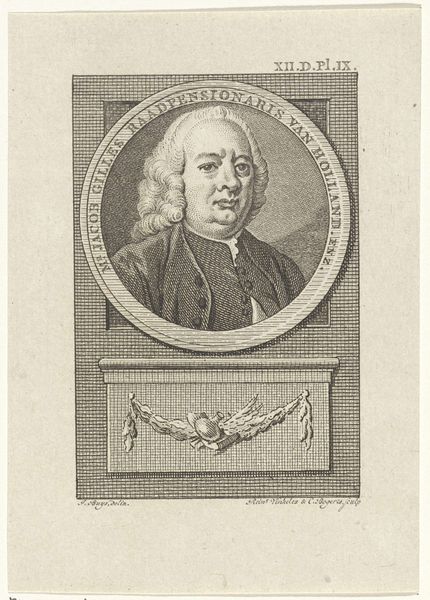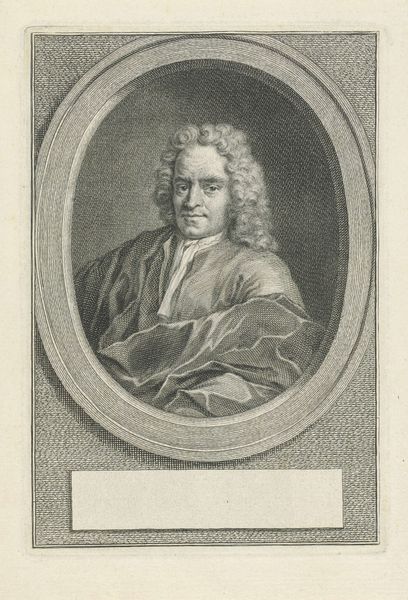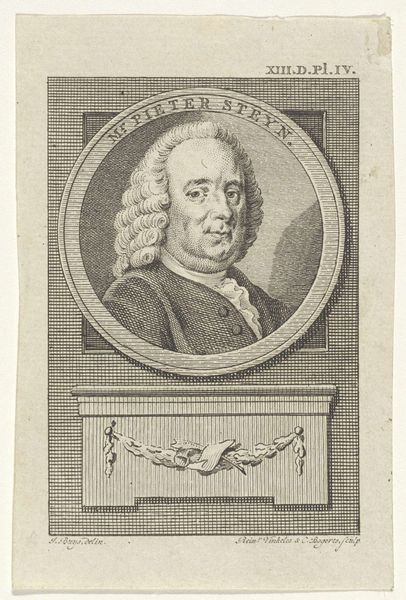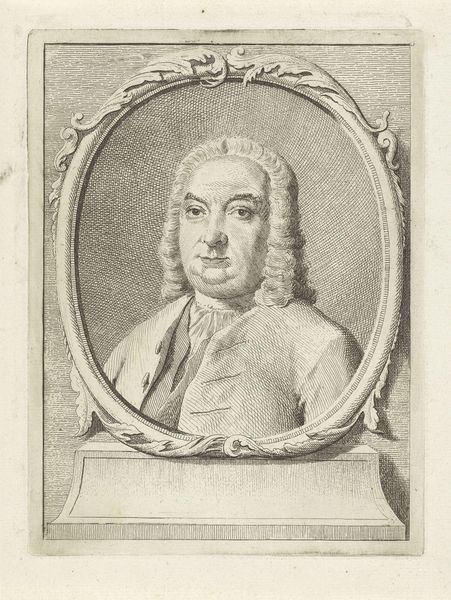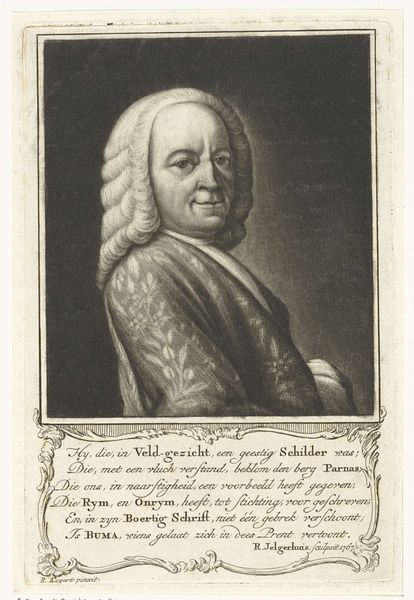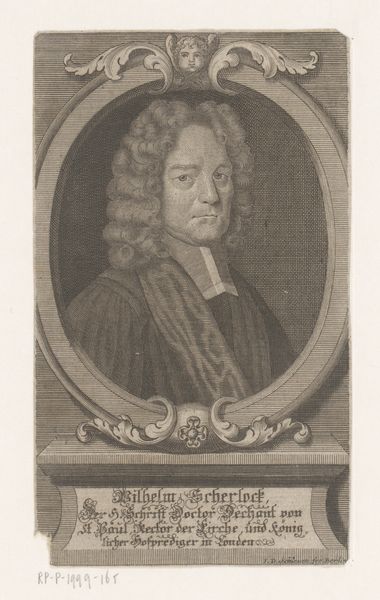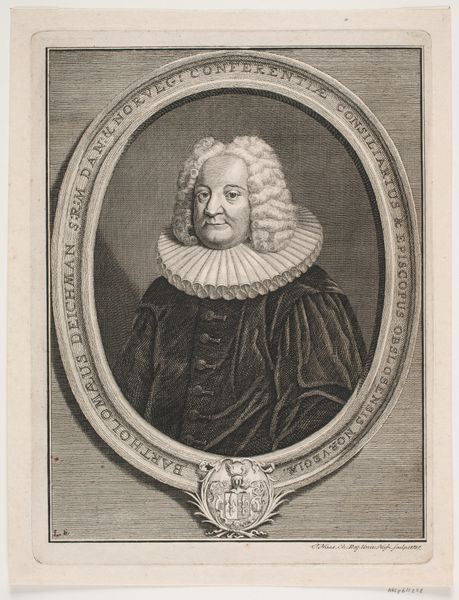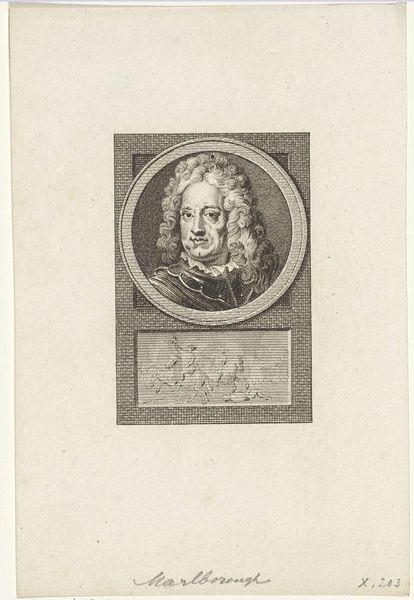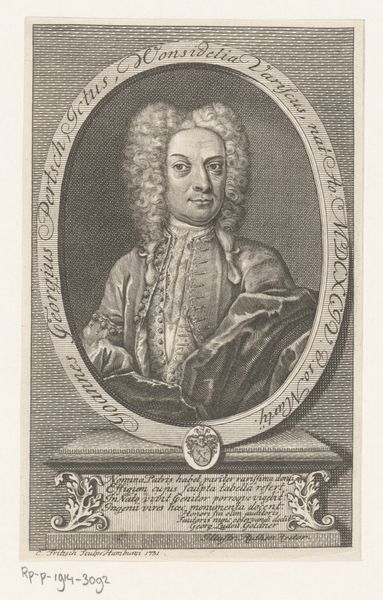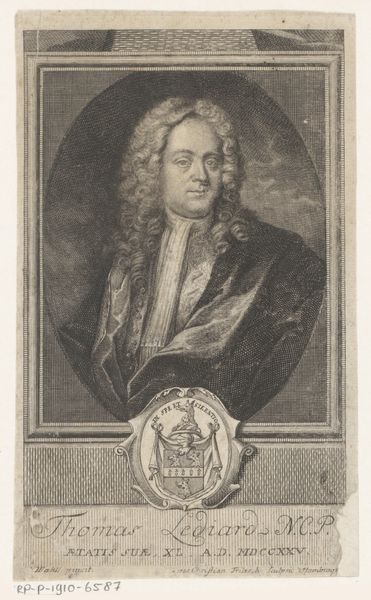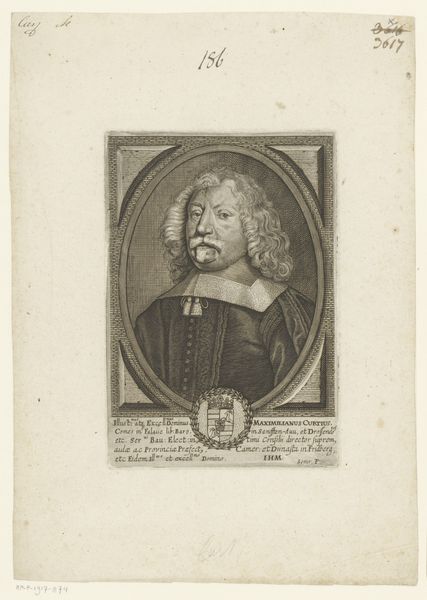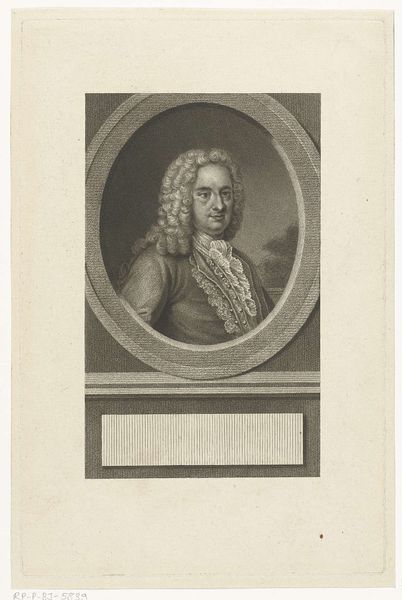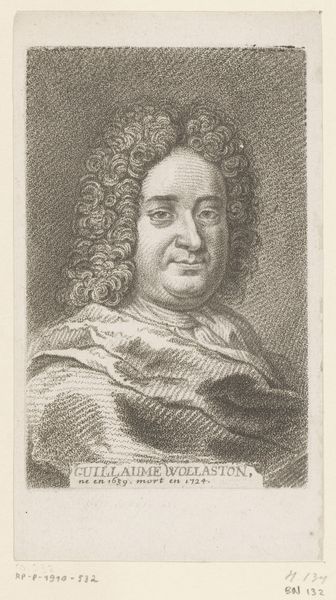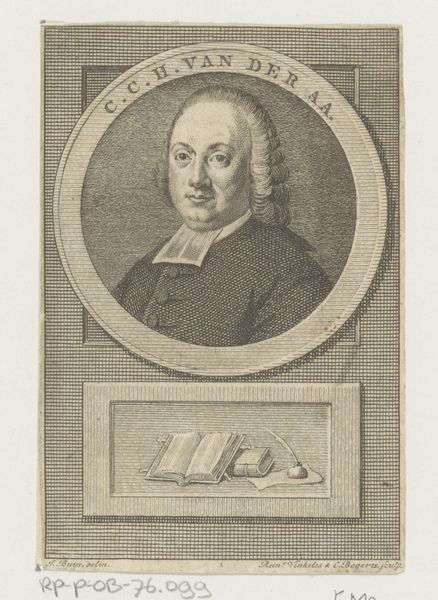
Dimensions: height 107 mm, width 70 mm
Copyright: Rijks Museum: Open Domain
Reinier Vinkeles created this portrait of Adriaan Valckenier with etching. Notice Valckenier's powdered wig; in the 18th century, it was an important marker of status, derived from the court of Louis XIII, where it was adopted to hide baldness and aging. It quickly became associated with power, wealth, and belonging to the elite. Consider how this emblem of authority migrated and evolved. Initially a symbol of royal power and aristocracy, it eventually became common among the middle class. We see echoes of this in legal professions, such as judges and barristers, who today wear wigs as a demonstration of authority. The wig, once a clear indicator of the old order, now appears in contexts far removed from its origins. It has transformed, losing some of its original associations with royalty and aristocracy, and continues to resonate with notions of tradition, formality, and, still, a certain type of authority. Thus, the wig's journey reveals how symbols can be detached from their original context, and become entrenched within the collective cultural memory.
Comments
No comments
Be the first to comment and join the conversation on the ultimate creative platform.
